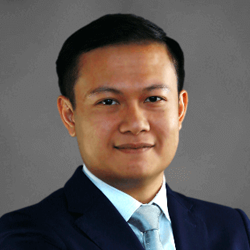
|
Professor, Vidyasirimedhi Institute of Science and Technology Pichaya Pattanasattayavong received a PhD in Physics from Imperial College London, UK, in 2015. He is an assistant professor at VISTEC, a postgraduate university in Thailand, and leads the Electronic Devices and Materials Innovation Laboratory. One of the key research areas is the development of thermoresponsive materials for sensors, which can be applied as smart labels. |
About the Session
Thermoresponsive Materials Enabling Battery-Free, NFC/RFID Temperature-Monitoring Labels
Tues 15 Nov, 11:10 AM – 11:40 AM (30 Mins) • Presentation Area II
Smart labels that can detect a critical temperature threshold are in demand for tracking temperature-sensitive goods in modern logistics. The visual temperature indicators are widely used, but they require manual inspection of individual tags. In contrast, RF-based devices require a power supply (data loggers), thus not suitable for item-level tracking. Some temperature-sensing passive NFC/RFID tags are available; however, they can only report the temperature when communicating with an RF interrogator. Our team has developed a new sensor component based on thermoresponsive materials that can be integrated with conventional passive NFC/RFID labels.
The sensor operates continuously based on the physical reactions of the thermoresponsive materials, eliminating the need of an external power source. Crucially, the status of the sensor is specifically engineered to be irreversible: once a temperature threshold is exceeded, both the visual appearance (color) and the electrical state of the sensor are irreversibly changed. Essentially, this allows the sensor to store 1-bit memory of the thermal history (within limit vs limit exceeded) and can output both visual and digital indicating signals. The sensor’s properties enable the realization of smart temperature-monitoring, battery-less labels for item-level tracking of temperature-sensitive goods such as pharmaceutical and cosmetic products.









No comments yet